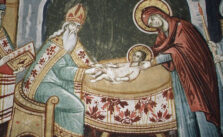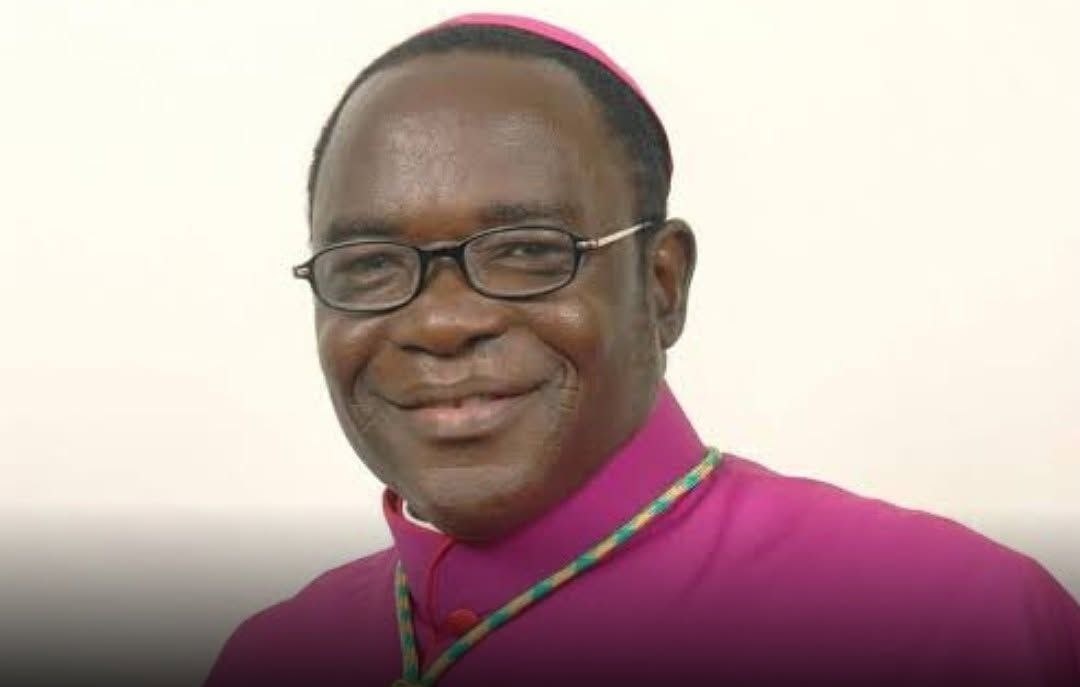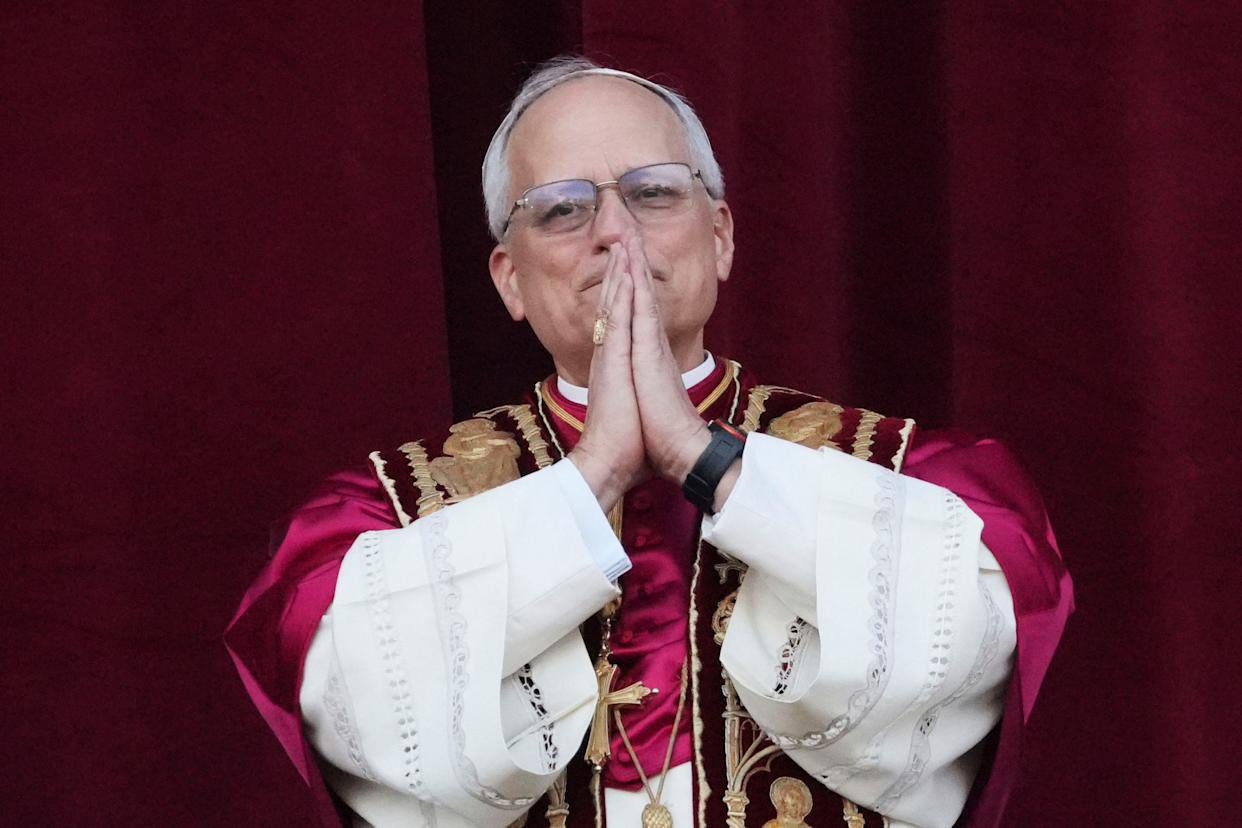Photo: foma.ru
In the name of the Father, and the Son, and the Holy Spirit!
Dear brothers and sisters, the commemoration of sacred events connected with the name of Jesus Christ is always salvific, edifying, and comforting for the faithful. The holy Church therefore tries to imprint as many memories of Jesus Christ as possible, as many of His holy commandments and miracles in our hearts and minds as possible in order to strengthen and deepen our faith in Him, because our salvation essentially depends on our faith in Him. The Lord Himself repeatedly says that whoever believeth on Him, may have everlasting life: and I will raise him up at the last day (Jn. 6:40). The holy Apostle John the Theologian, enumerating various miracles of the Lord in his Gospel, further adds that everything is written so that we may believe that Jesus is the Christ, the Son of God, and believing in Him, we might have eternal life.
Today, the holy Church celebrates the feast of the Circumcision of the Lord. It’s now the eighth day since the feats of the Birth of Christ the Savior, and on this day, according to the Old Testament Jewish Law, it was necessary to circumcise male infants. What was circumcision among the Jews and why was it established? Circumcision in the Old Testament Church was a sacred rite and at the same time a mystery, a means through which every newborn Israelite was brought into covenant with God as the supreme ruler of the Jewish people.
Circumcision was established by God Himself, Who commanded Abraham to perform it for the first time on himself and his family; it consisted in removing the foreskin of every male child and was performed on the eighth day after birth. As a result of circumcision, the God of Abraham, Isaac, and Jacob became the God of the circumcised infant, and at the same time, all the promises given to the forefathers of the Jewish people were assimilated to the him, just as the circumcised one assumed the obligation to fulfill everything that was prescribed to this people by God through Moses and the prophets. Not being circumcised was tantamount to renouncing Judaism. God Himself threatened to deprive such a man not only of all his rights, but of his very life. And the uncircumcised man child whose flesh of his foreskin is not circumcised, that soul shall be cut off from his people; he hath broken My covenant (Gen. 17:14), says the Lord. Sacred Scripture doesn’t say anything about why circumcision was chosen as a sign of the covenant with God, but according to the Holy Fathers, it signified the removal of the natural impurity of every man born, the sinful state of human nature, man’s determination and willingness to fight against the depravity of his nature, to crucify his flesh with its passions and lusts.
But the question is, why did Jesus Christ, the Savior of the world, conceived and born without sin, having pure and holy flesh, submit to circumcision? First of all, the Lord accepts circumcision and the other Old Testament mysteries and rites to thereby give an example for men to obey the Law, and on the other hand, having accepted our nature, He also took upon Himself all our sins and unrighteousness. Early circumcision teaches us to begin the internal circumcision of our heart from any early age. According to the word of the Apostle Paul, in Christ Jesus we are circumcised with the circumcision made without hands, in putting off the body of the sins of the flesh by the circumcision of Christ (Col. 2:11).
The circumcision of the flesh was very painful, but beneficial. Similarly, the circumcision of the heart, that is, the cutting off evil inclinations, is sorrowful, but beneficial. We have to cut off the evil inclinations of the heart, impure thoughts, and vain desires that can hinder the successes of faith and piety, because from evil thoughts and desires are born evil deeds, and on the other hand, impure thoughts themselves make us unworthy before the Lord, Who knows our hearts. We have to cut off both spiritual and bodily passions to make our bodies and souls a fragrant temple of the living God. The second lesson we take from the present feast is that we must try to precisely follow all the ordinances of the Church, as exemplified for us by Jesus Christ, Who submitted to the Law of the Old Testament Church.
The Church also celebrates the memory of St. Basil the Great today. He was a mighty pillar of the Church, raised up by Caesarea of Cappadocia. He was born in 329 and died in 379. St. Basil was born and lived in the most troubled and difficult times for the Church of Christ, when the enemy of our salvation, after his unsuccessful fight against it for three centuries by the persecution and killing of Christians failed to achieve its goal, then gave rise to various heresies in the Church of Christ, such as Arianism, Nestorianism, Monophysitism, and others.
And at this time, in order to help the Orthodox Church, the Lord raised up the wondrous and tireless champion and universal teacher St. Basil the Great. He was a man of high and holy moral life, an ascetic, theologian, and the most educated of men of his age. He studied secular sciences in Alexandria, then in Athens, famous for its sciences, and then, upon returning home, he began diligently studying the Holy Scriptures and was often in prayer and fasting. In view of the Arians’ struggle against the Orthodox, he was ordained first as a presbyter, and then as bishop of Caesarea of Cappadocia, where he defended the purity of Orthodoxy to the end of his days.
When the wicked King Valens wanted to introduce Arianism by force, St. Basil was summoned to the court of the Prefect Modestos. He demanded that St. Basil accept the emperor’s will, pointing to the many bishops who had agreed to accept Arianism. Then St. Basil said: “My King doesn’t want the worship of a creature.” When Modestos, annoyed by the saint’s intransigence and bold answers, asked: “Aren’t you afraid of my power?” St. Basil replied: “What’s there for me to fear?” “I’ll order your estate to be seized for the treasury, and you’ll be sent into exile, tortured, and put to death,” said the king. “Threaten me with something else if you can,” answered St. Basil. “Those who have nothing have nothing to be seized. I have only a hair shirt and a few books. I don’t consider exile to be exile; the whole earth is God’s, and I’m a stranger and wanderer. Death is a blessing for me—it will lead me more quickly to God, for Whom I live, Whom I serve, and for Whom, for the most part, I have already died.” Marveling at these replies of St. Basil, Modestos and Valens left him alone…










